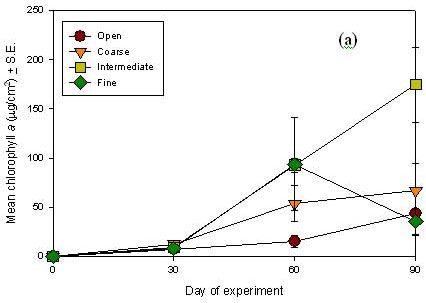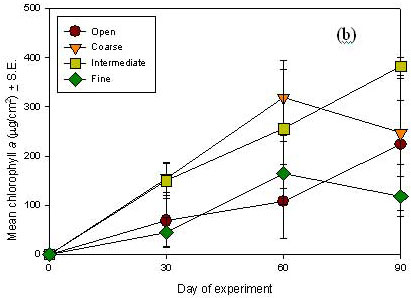 Alberta's WaterIntroductionPublications Climate Change Industrial Impacts Agricultural Impacts Urban Impacts Biodiversity Loss Definitions Links Site Map |
 |
|
 |
| Grazing did not suppress chlorophyll a inferred development of periphyton in stressed (a) or recovered (b) lakes. |
 |
Why is this important?
If grazing is an important regulator of algal communities while acidity changes, recovery may not closely track chemical recovery. Since boreal ecosystems are naturally species-poor and communities rely on only a few species to perform ecological processes, the impacts of delayed recovery could be considerable. The effects of sustained losses in biodiversity in boreal ecosystems are currently unknown. Knowledge of differential recovery rates of biological communities can be used to determine appropriate timing for species re-introductions which have been proposed to facilitate recovery in stressed lake ecosystems.
Future Research
Current research involves collecting algal taxonomic and biovolume data, which will be used to identify compensatory species dynamics and determine if benthic consumers selectively change algal assemblages during acidity changes.



 Compensatory Species Dynamics and Grazing in Recovering Acidified Lakes: Regulation of Biological Recovery Responses
Compensatory Species Dynamics and Grazing in Recovering Acidified Lakes: Regulation of Biological Recovery Responses